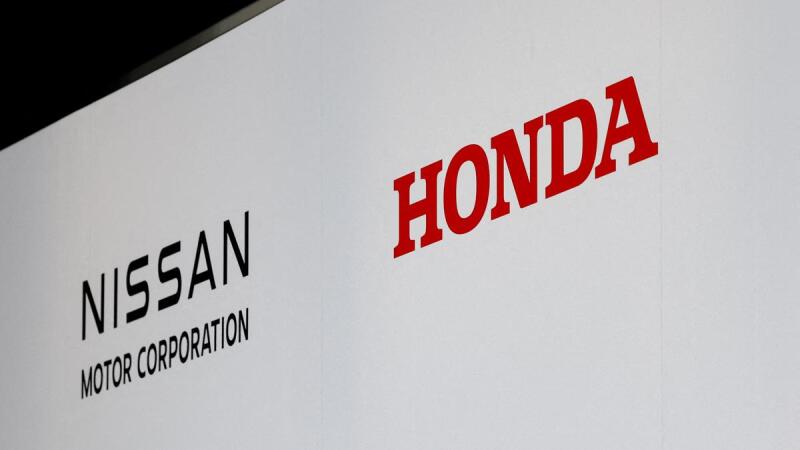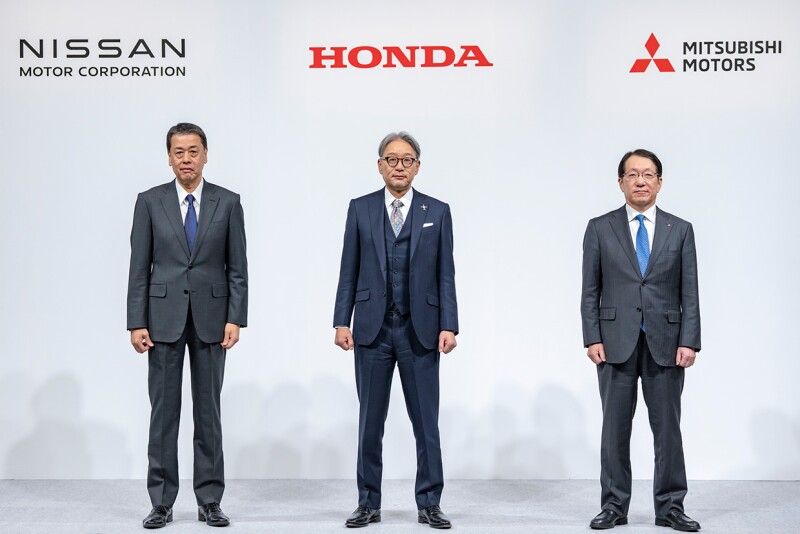The Honda-Nissan Merger Ends Before it Even Started

China Daily
Just two months after discussing the possibility of a merger, Honda and Nissan have decided to call off their partnership plans. This move leaves Nissan, which has been facing financial struggles, to pursue alternative partnerships.
A Potential Global Automotive Giant
This marks the premature end of a collaboration that, in theory, could have created one of the largest automotive companies in the world, ranking as the third-largest automaker globally, after Volkswagen and Toyota.
Initially, Honda and Nissan had agreed to a merger that would have put both companies under a single holding entity. Honda, with a market value about five times larger than Nissan’s, proposed making Nissan a subsidiary via a share exchange.

Honda
The CEOs of both companies clashed over Honda’s attempts to alter the terms of the agreement in several press briefings. Honda’s Toshihiro Mibe expressed concerns that if Nissan continued to hold power over the board, crucial decisions might be delayed. Mibe argued that the original plan “would not keep up with the speed demanded by the times.”
Nissan’s CEO Concerns Over Autonomy and Potential
Meanwhile, Nissan’s CEO, Makoto Uchida, stated that he could not accept being part of Honda, as he wasn’t sure how much autonomy Nissan would retain or whether the company could fully realize its potential.
The merger’s potential for achieving economies of scale could have helped both brands boost their research and development capacities and compete more effectively in emerging technologies. Talks had progressed to the point where Mitsubishi Motors was also brought into the conversation.
The failure of this partnership will have major consequences for all three brands, especially Nissan, which now has to find new financial resources to address its unstable financial situation. On the other hand, Honda has stuck with its annual profit forecast, following third-quarter results that were close to expectations.
Foxconn’s Interest in Collaborating with Nissan
A potential partner that has recently surfaced in discussions is Foxconn, a Taiwanese electronics company known for manufacturing Apple products. Foxconn’s chairman, Young Liu, expressed interest in working with Nissan but denied any plans to pursue an acquisition.

Honda
In response to its financial troubles, Nissan announced plans to cut expenses by around $2.6 billion, including reducing operations at its plants in Smyrna, Tennessee, and Canton, Mississippi, and eliminating one-fifth of its senior management positions.
However, not all news is negative. Although the merger plans were scrapped, Honda and Nissan confirmed that they would continue their strategic collaboration with Mitsubishi Motors, focusing on developing in-house batteries, autonomous driving software, and electric vehicle technology.
Toshihiro Mibe, Honda’s CEO, commented, “While the outcome is unfortunate, we now have a mutual appreciation of our synergies that can be utilized in our existing strategic partnership.”
Honda’s Financial Performance and Market Focus
For the quarter ending December 31, Honda reported an operating profit of ¥397 billion ($2.6 billion), slightly below analysts’ expectations of ¥407 billion. The company pointed to a recovery in the U.S. market to offset weaker sales in China, Japan, and Southeast Asia.
In contrast, Nissan’s operational income for the entire fiscal year was significantly lower, at ¥120 billion ($790 million), down from the predicted ¥150 billion ($990 million). This prediction included a restructuring charge of ¥100 billion ($660 million).

Honda
Mibe confirmed that Honda had no intentions of pursuing a hostile takeover of Nissan and that the Japanese government had neither initiated nor participated in negotiations with Nissan’s CEO.
The Aftermath: Why the Merger Failed and What It Reveals
I had high hopes for such a large merger. The combined group would have been able to challenge industry giants like Volkswagen AG and compete against the growing presence of Chinese electric and hybrid car brands. However, the failed merger reveals the true nature of the situation: one brand sought financial rescue, while the other aimed to scale up to compete with the industry’s heavyweights in a changing global landscape. But was this ever really a secret?
What’s next for Honda, Nissan, and Mitsubishi?
Read the original article on: New Atlas
Read more: Consumer Reports Declares Toyota and Lexus No Longer the Most Reliable Car Brands










